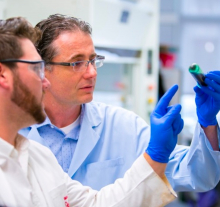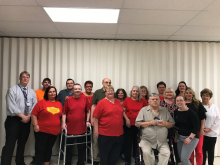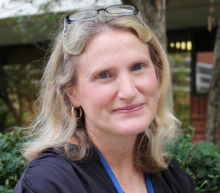This time next year, the inaugural class of medical students at the new University of Kentucky College of Medicine-Bowling Green Campus will be attending their very first course, kicking off an exciting new opportunity for future Kentucky clinicians.
NIH Clarifies Full Time Training for Research Service Awards
[From the NIH Website]
Additional Guidance on ‘Full-Time Training’ for Ruth L. Kirschstein National Research Service Awards
Notice Number: NOT-OD-17-095
Key Dates
Release Date: July 24, 2017
Related Announcements
None
Subaward Assistance Provided by COM Sponsored Research Administrative Services
The total requests for new and amended subawards have steadily increased, per a recent update by Kim Carter, Executive Director, UK Office of Sponsored Projects Administration (OSPA). With over 400 requests in FY17, administering subawards has quickly become a major part of research administration operations both at the College of Medicine (COM) and University-wide levels. &nbs
Effects of exogenous leptin on seasonal reproductive responses to interacting environmental cues in female Siberian hamsters.
Bailey, A. M., S. J. Legan, V. J. Meretsky, and G. E. Demas. "Effects of Exogenous Leptin on Seasonal Reproductive Responses to Interacting Environmental Cues in Female Siberian Hamsters." Gen Comp Endocrinol 250 (Sep 01 2017): 95-103. http://dx.doi.org/10.1016/j.ygcen.2017.06.004.
Matthew Gentry: Biofuels, Epilepsy and Science Advocacy
By Vice President for Research Lisa Cassis Thursday
In May, it was my distinct pleasure to present Matthew Gentry with a University Research Professorship award. He was one of 16 faculty, selected by their own colleges, who have demonstrated excellence in scholarship and creative work that addresses scientific, social, cultural and economic challenges in our region and around the world.
Updated F&A Rates Announced for Clinical Trials
Facilities and Administrative Cost (F&A) Rates
F&A Rate for Industry-funded Clinical Trials
Perry County Stroke Support Group Joins National Registry
MEDIA CONTACT: Beth Bowling, beth.bowling@uky.edu, 606-439-3557






